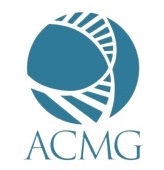Medical geneticists specialize in medicine that involves the interaction between genes and health. They are trained to evaluate, diagnose, manage, treat, and counsel individuals of all ages with hereditary disorders.
What is a medical geneticist?
Medical geneticists specialize in medicine that involves the interaction between genes and health. They are trained to evaluate, diagnose, manage, treat, and counsel individuals of all ages with hereditary disorders. This specialist uses modern cytogenetic, molecular, genomic, and biochemical genetic testing to assist in specialized diagnostic evaluations, implement needed therapeutic interventions, and provide genetic counseling and prevention through prenatal and preimplantation diagnosis. The medical geneticist plans and coordinates screening for genetic diseases involving single gene and chromosomal disorders, congenital anomalies, inborn errors of metabolism, multifactorial conditions, and common disorders with hereditary factors.
What does a medical geneticist do?
Medical genetics and genomics is an exciting and rapidly growing medical specialty. Medical genetics and genomics is a primary specialty, not a subspecialty of another field. Physicians who specialize in medical genetics and genomics, also known as clinical geneticists, provide comprehensive diagnostic, management and genetic counseling services for patients with, or at risk for, genetically influenced health problems.
Medical geneticists care for patients of all ages and across all specialties. Some medical geneticists specialize in specific areas within medical genetics and genomics, including pediatric genetics, prenatal genetics, biochemical genetics, adult genetics, and neurogenetics or cancer genetics, while others care for patients of all ages with a broad variety of underlying genetic conditions. Clinical geneticists can also plan and coordinate large-scale screening programs for inborn errors of metabolism, neural tube defects and other genetically influenced conditions, while others may direct and participate in clinical trials for treatment of genetic conditions.
As the genetic factors underlying many common diseases—from diabetes to hypertension—are becoming better understood, medical geneticists are increasingly involved in the care of patients with common conditions and are being called upon to educate their medical colleagues and manage complex patient care that cuts across many different specialties.
Many medical geneticists work in academic medical centers and are actively involved in teaching and research in addition to evaluating and caring for patients with underlying genetic conditions. Some geneticists spend the majority of their time in clinical activities, while others may concentrate on research and see patients during a smaller portion of their time. Clinical geneticists develop long-term relationships with patients and their families as they coordinate and manage their care, and provide consultative services within the hospital to other specialists who require the expertise of a medical geneticist. With the growing importance of genetics in human disease, one can also find medical geneticists working in the areas of public health care policy, managed care or private practice. Given the variety of work options available to a medical geneticist, it is a specialty that provides an excellent opportunity for work-life balance.
Clinical genetics training is generally acquired by completing a 24-month ACGME-accredited residency in medical genetics and genomics. At least one year of training in another primary ACGME residency (e.g., pediatrics, internal medicine, OB/ GYN, family medicine, neurology) is necessary prior to beginning a medical genetics and genomics residency.
Other options that begin right after medical school include combined training programs in pediatrics/genetics and internal medicine/genetics. A combined training program in maternal-fetal medicine/genetics is also available after completion of an OB/GYN residency. Laboratory fellowship training is also available in cytogenetics, molecular genetics and biochemical genetics. In addition, those who have completed a residency in pathology can enter a one-year fellowship program in molecular genetic pathology, which focuses on the laboratory diagnosis of genetic diseases.
Individuals attracted to medical genetics and genomics are those who are interested in the uniqueness of specialty knowledge but wish to apply that knowledge across broad areas of medical practice, as well as those who want to be on the front end of a growing new specialty with a rapidly expanding scientific base and great career flexibility.
How to become a medical geneticist?
Specialty training required prior to certification: Two years

American Board of Medical Genetics and Genomics
abmgg.org
6120 Executive Blvd
Rockville, MD 20852
(301) 634-7315
Email: [email protected]

American College of Medical Genetics and Genomics
acmg.net
7101 Wisconsin Ave
Ste 1101
Bethesda, MD 20814
(301) 718-9603
Email: [email protected]

Society of Maternal-Fetal Medicine
smfm.org
P.O. Box 420016
Washington, DC 20042
Contact form